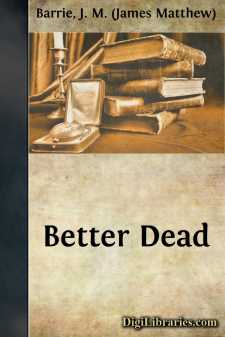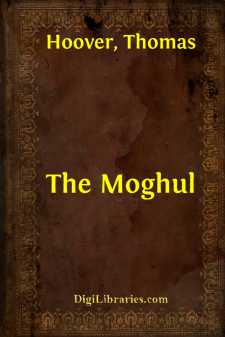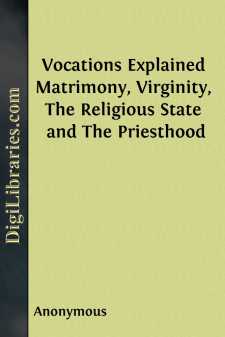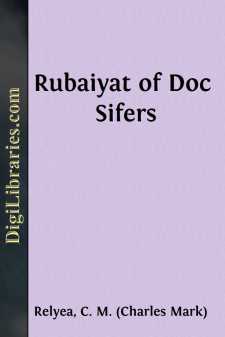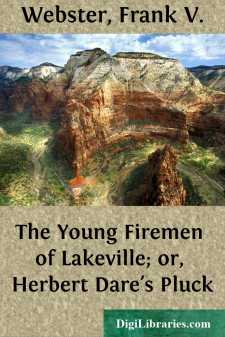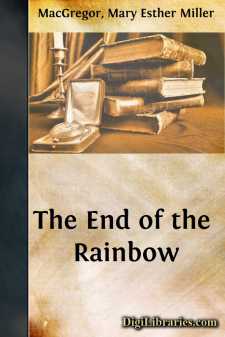Fiction
- Action & Adventure 180
- Biographical 15
- Christian 59
- Classics
- Coming of Age 5
- Contemporary Women 3
- Erotica 8
- Espionage/Intrigue 12
- Fairy Tales, Folklore & Mythology 236
- Family Life 169
- Fantasy 117
- Gay 1
- General 596
- Ghost 32
- Historical 808
- Horror 43
- Humorous 160
- Jewish 25
- Legal 4
- Medical 22
- Mystery & Detective 315
- Political 49
- Psychological 41
- Religious 64
- Romance 159
- Sagas 11
- Science Fiction 730
- Sea Stories 113
- Short Stories (single author) 537
- Sports 10
- Suspense 1
- Technological 8
- Thrillers 2
- Urban Life 31
- Visionary & Metaphysical 1
- War & Military 173
- Westerns 199
Classics Books
Sort by:
INTRODUCTION This is the only American edition of my books produced with my sanction, and I have special reasons for thanking Messrs. Scribner for its publication; they let it be seen, by this edition, what are my books, for I know not how many volumes purporting to be by me, are in circulation in America which are no books of mine. I have seen several of these, bearing such titles as "Two of...
more...
CASE 1. 1. Portrait of Robert Evans. Lent by Canon Evans, Bedworth. Father of G. E., and prototype of Adam Bede. 2. Diaries of Robert Evans (“Adam Bede”). Lent by Mr. Walter P. Evans, Leamington. CASE 2. 3. Portrait of Isaac P. Evans. Lent by Canon Evans, Bedworth. G. E’s brother; original of “Tom Tulliver.” 3a. Another portrait of Isaac P. Evans. Lent by Mr. W. P. Evans, Leamington....
more...
by:
Thomas Hoover
CHAPTERONE He watched from the quarterdeck as the chain fed through the whitecaps of the bay, its staccato clatter muffled, hollow in the midday heat. Then he sensed the anchor grab and felt an uneasy tremor pass along the hull as the links snapped taut against the tide. The cannon were already run in and cooling, but vagrant threads of smoke still traced skyward through the scuttles...
more...
CHAPTER I. The breaking waves dashed highOn a stern and rock-hound coast:And the woods against a stormy sky,Their giant branches tost.And the heavy night hung darkThe hills and waters o'er,When a hand of exiles moored their barkOn the wild New England shore. HEMANS. It was, indeed, a stern and rock-bound coast beneath which the gallant little Mayflower furled her tattered sails, and dropped her...
more...
by:
Anonymous
CHAPTER I. DEFINITION.—EVERY PERSON HAS SOME SPECIAL VOCATION. Q. What is a vocation? A. A call from God to some state of life. Q. Which are the principal states of life? A. Matrimony, virginity, the religious state, and the priesthood. Q. Has every person a vocation? A. Yes; God gives a special vocation to each person. Q. How is this doctrine proved? A. St. Paul says: "Every one hath his proper...
more...
Ef you don't knowDoc SifersI'll jes argy, here and now,You've bin a mighty little while about here, anyhow!'Cause Doc he's rid these roads and woods—erswum'em, now and then—And practised in this neighberhood sence hain't no tellin' when! IIIn radius o' fifteen mile'd, all p'ints o' compass round,No man er woman, chick er child, er team, on...
more...
by:
Frank V. Webster
CHAPTER I A MIDNIGHT ALARM "Fire! Fire! Turn out, everybody! Fire! Fire!" This cry, coming like a clarion call, at midnight, awoke the inhabitants of the peaceful little New England village of Lakeville. "Fire! Fire!" Heads were thrust out of hastily-raised windows. Men and women looked up and down the street, and then glanced around to detect the reddening in the sky that would...
more...
WHAT 'THE GOSPEL' IS The beginning of the gospel of Jesus Christ.—Mark i. 1 My purpose now is to point out some of the various connections in which the New Testament uses that familiar phrase, 'the gospel,' and briefly to gather some of the important thoughts which these suggest. Possibly the process may help to restore freshness to a word so well worn that it slips over our...
more...
THE GLEAM All afternoon the little town had lain dozing under the lullaby of a June rain. It was not so much a rain as a gentle dewy mist, touching the lawns and gardens and the maple trees that lined each street into more vivid green, and laying a thick moist carpet over the dust of the highways. And the little town, ringed by forest and lake, and canopied by maple boughs, had lain there enjoying it,...
more...
MONK'S ORCHARD, UPTON,Jan. 23, 1904. MY DEAR HERBERT,—I have just heard the disheartening news, and I write to say that I am sorry toto corde. I don't yet know the full extent of the calamity, the length of your exile, the place, or the conditions under which you will have to live. Perhaps you or Nelly can find time to let me have a few lines about it all? But I suppose there is a good side...
more...


